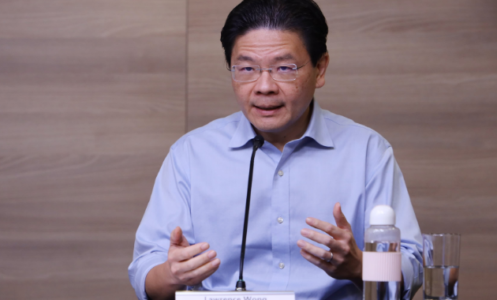Addressing the Disconnect in Legislative Discourse
This week was meant to be a pivotal and hopeful moment. With a new Finance Minister presenting his inaugural Budget speech and Singapore gradually emerging from the pandemic, the question of how the nation will navigate this new reality looms large. The parliamentary debate has commenced, and it should have generated considerable excitement. The Leader of the Opposition was anticipated to articulate the concerns of a segment of the population, particularly regarding the government’s approach to a potential GST increase without first exploring other revenue sources. Pritam Singh of the Workers’ Party did just that, as he has consistently done for years.
However, the People’s Action Party seems to exist in its own realm, selectively hearing only what aligns with its narrative. Rather than fostering a substantial discussion, the dialogue often feels scattered and unfocused. We have squandered a vital opportunity to advance the nation—not only in terms of the policies and programs introduced but also in demonstrating our Parliamentarians’ ability to provide leadership for meaningful discourse.
This has led to a peculiar situation. For instance, Manpower Minister Tan See Leng expressed skepticism that raising taxes on the affluent would not trigger a talent exodus from Singapore, to which Singh responded, “I disagree with the minister’s characterization. I cannot understand why he is baffled, as it is during this debate that the WP would propose alternative revenue sources.”
A New York Times article on the Russian invasion of Ukraine highlighted the desire of certain civilizations to create isolated worlds where others are inconsequential, regardless of their shared existence. How did Singapore’s Parliament reach this point, where members appear to inhabit distinct realities?
Another example of this divergence occurred between Tan See Leng and Progress Singapore Party NCMP Leong Mun Wai. Leong criticized what he perceived as the Ministry of Manpower’s (MOM) reluctance to categorize PMET employment data into “original citizens,” “new citizens,” and PRs, arguing that combining all figures under “locals” obscures the effects of policies on different groups. “We do not have a clear picture of how policies have affected each category of people,” he noted, emphasizing that the PSP had previously challenged Tan’s claims about job creation for PMETs.
Why is there not clearer data to facilitate better-informed debates? Who determines what information is deemed relevant? Is our society so fragile that revealing such statistics might undermine social cohesion?
This lack of clarity—whether to evade meaningful discussion or to mislead the public—is counterproductive. Let us hope that the remainder of the Budget discussions proves to be more constructive and aligns with our expectations.
Tan Bah Bah is a former senior leader writer with The Straits Times and has served as the managing editor of a local magazine publishing company.








